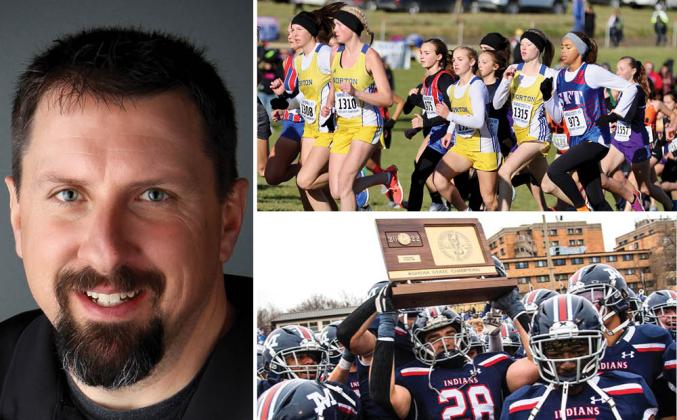Column: Balance, In All Things
Help kids work smarter, not just harder
As a young professional I remember feeling very driven, something that mirrored my philosophy as it related to high school and college athletics, and later coaching, but now, as the knees get a little creakier and proofing sports stories requires reading glasses, I spend more time thinking about working smarter, not harder. I find it much more important to find work-life balance now than I did 10 years ago.
Last July, the Kansas High School Activities Association held meetings with coaches and administrators across Kansas to discuss summer rules, policies, and regulations. Just prior to those meetings, in a Facebook post, KSHSAA officials asked the public what they would like to see changed or adjusted in respect to summer policies and schedules.
The question received an incredible response, with over 325 comments on the Facebook post, the majority of which asked for more freedom from athletic obligations for young athletes in the summer.
I spent 10 years coaching high school football. As a young coach, I was one of the droves of coaches asking for more opportunities to work with players in the offseason. At the time, KSHSAA policies were very limiting and allowed little organized interaction with student-athletes outside of summer weights.
After years of loosening restrictions, I fear Kansas may have tipped too far to the other side of the equation.
I get it, to be great requires a great deal of effort. To play at a championship level requires not just honing the physical skills – sport specific and overall physical fitness – but also sharpening one’s mental acuity.
Championship teams are proficient at executing the strategies of their coaches. Championship teams develop effective communication. Championship teams are driven by player-leaders.
All of this requires practice, and practice requires time.
Most coaches want multi-sport athletes rather than single-sport specialization – which I wholeheartedly agree with – but under current guidelines that can mean three different summer schedules with training and competition for all three sports. Summer baseball or softball can take more time. Camps and clubs even more. And many teenagers still need to work.
But this is not all on the coaches. Parents help young athletes find opportunities on traveling club teams. Camps and combines add another layer. I understand this, too. These opportunities generate scholarship exposure and provide access to individualized coaching the athletes may be unable to get in large group settings.
Even so, it’s time to find a little more balance.
In my 25 years covering high school sports, and in my time as a coach and an employer, I’ve heard all the arguments for and against expanded summer schedules for young athletes. But this is not a problem solved by digging in your heels, communication between coaches, parents, and administrators is key.
Summer schedules need laid out months in advance and honest dialogue about the priorities of the parent, the coach, AND the athlete – he or she is the most important party after-all – are imperative.
I’ve been a parent now for just over 10 years, and childhood, now, more than ever, seems gone in the blink of an eye. I honestly think the various stakeholders in this conversation can work together to help young student-athletes enjoy a bit more of their youth, before time pushes them into an adult world where the choices become much harder, much faster.
We’ve all heard it dozens of times, “In all things, moderation.” It applies to student-athletes and summer as well. Overtraining, sleep deprivation, lack of time with friends and family – all of these things are real issues with real consequences.
Hopefully KSHSAA officials, high school coaches, student employers, and parents can all work together to bring a bit more balance to our teenagers’ lives.

